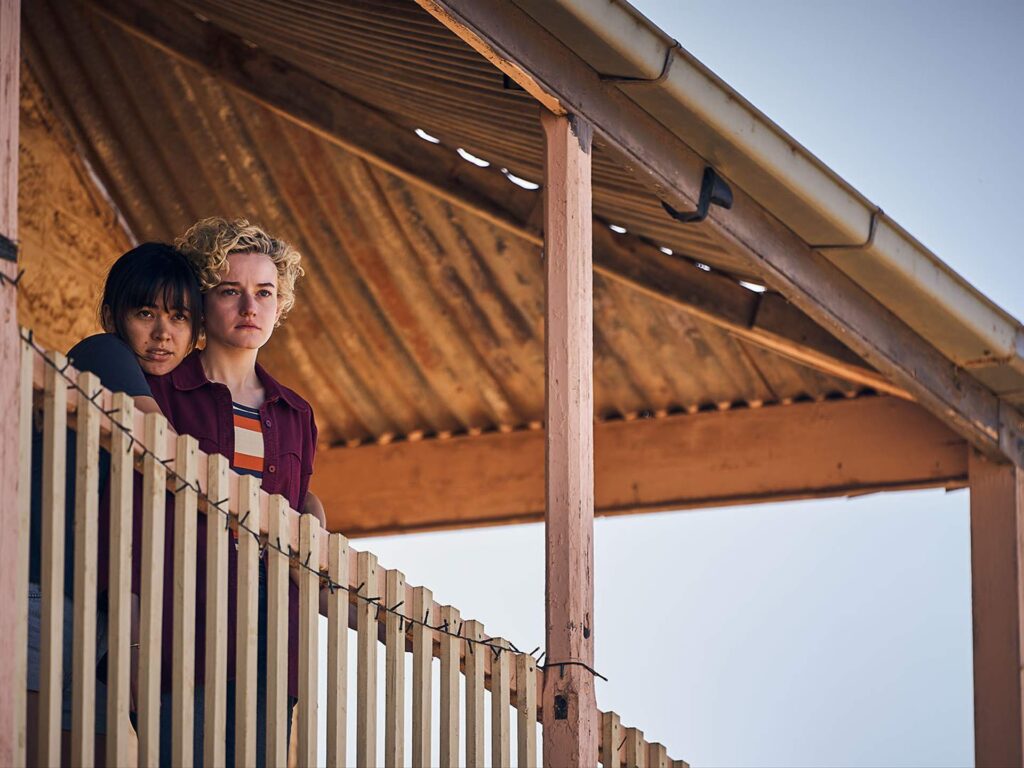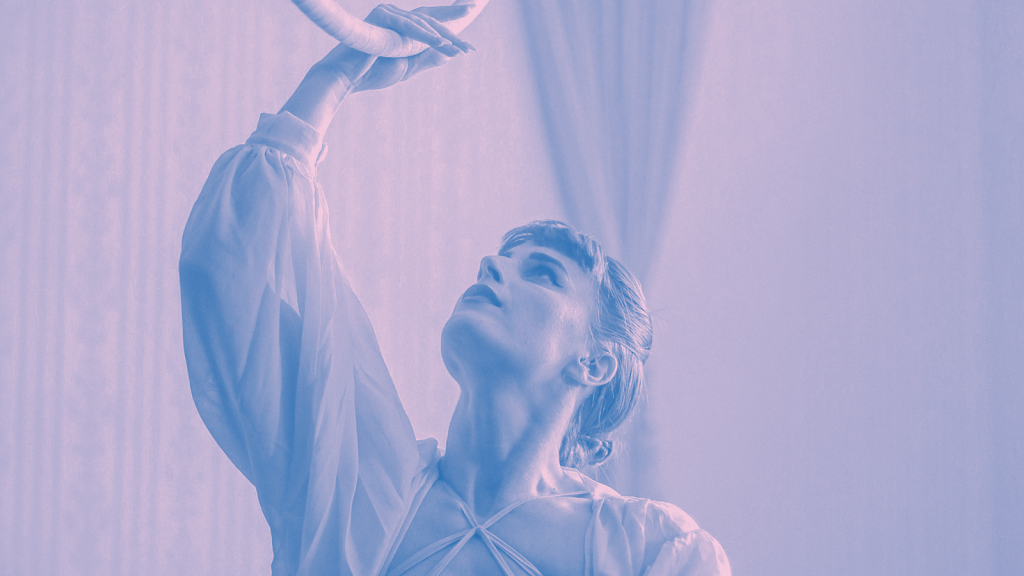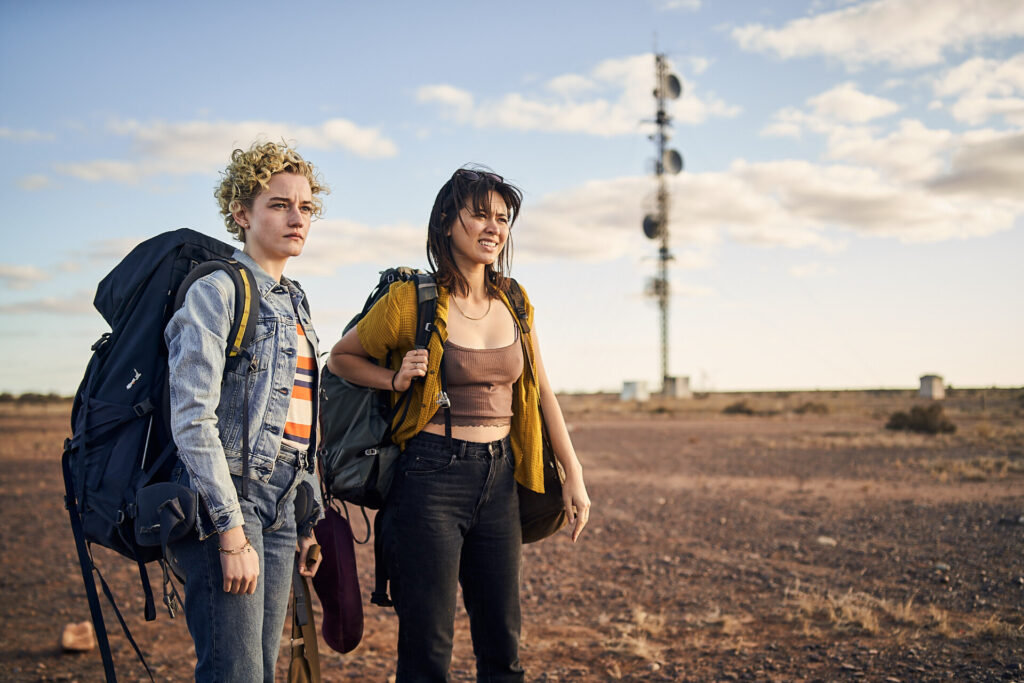
‘The Royal Hotel’ // Transmission Films and Screen Queensland
‘The Royal Hotel’ was frustrating.
Warning: This review contains coarse language, sexual references and spoilers.
After several high-profile premieres at Telluride, Toronto and London Film Festival, ‘The Royal Hotel’ was screened at the Brisbane International Film Festival on November 3rd. The film follows the deeply unnerving – and frustrating for some – story of two young female backpackers working in a dystopian Australian pub.
From a haunting whistle-like remix of “Land Down Under” to the comedic, albeit dark, portrayal of the outback, this film offers an unsettling journey into backpacker life in Australia. While the setting is predominantly rugged remote Queensland, the story begins with a picturesque Sydney Harbour introduction. The film explores the challenges two American city girls face when they move to a remote Australian mining town, both culturally and in terms of their personal safety.
While one of the main themes of the narrative is cultural shock, there is a darker layer tied into toxic personalities and relationships. The suggestions of danger throughout is reflected in a range of symbols. Early on, viewers are hit with “fresh meat” scrawled above a pair of breasts on the side of a bar, repeated warnings of “a storm coming in” from locals, dead snakes in jars decorating the town watering hole, and in the distance, there are audible cries for help with no clear source.
The authenticity of the dialogue, scenery, and other elements captures the Australian essence without being overbearing. The aesthetics of outback Australia, especially the dried-up pool and broken beach chairs set against the soundscape of distant screams, paints a vivid picture of both survival and decay. The use of the boxed wine, or “goon”, in this scene emphasises the thin line between laughter and despair in this harsh environment and the situations that unfold.
The film expertly transitions between scenes, such as shifting to the cruise ship deck from a dark night club with smooth lighting and travelling shots. The juxtaposition between the Sydney Harbour introduction and the outback landscapes are particularly striking, blending the urban and rural facets of Australia.
The film strategically explores the effects of extreme isolation, alcoholism, sexual violence, and racism; while the intense coarse language adds to the raw and visceral feel of the film.
Julia Garner shines as Hannah, further establishing herself as a standout actress of her generation. Her co-star, Jessica Henwick, plays the mysterious Liv, whose past remains an enigma. Their interactions with characters like the comedic barman Billy, played by Hugo Weaving, and the stern Carol, portrayed by the talented Ursula Yovich, are both humorous and tense.
The character of Matty, portrayed by Toby Wallace, becomes somewhat of a love interest for Hannah but early on, the film plays with his gender expression. He gives viewers a flamboyant, albeit bogan, rendition of Kylie’s ‘Locomotion’, sucks on a Golden Gaytime, and discusses his studies as a meteorologist. He starts off as the typical Aussie larrikin, but as his interest in Hannah becomes apparent; so too does his abusiveness.
At one point in the film, Matty acknowledges the eerie scream coming from a distant property and shouts, “We can hear you – shut the f*ck up!”. Some of the other men in the scene laugh with him, but no one seems to acknowledge or show concern about the woman’s cries. There is this allusion to someone held captive or being tortured, but the subplot never eventuates.
**SPOILER ALERT**
The film ends with Hannah and Liv burning the pub down and walking away, as the locals react by laughing and yelling. It is a chilling exploration of the Australian outback, emphasising themes of isolation, abuse, and the search for belonging.
The most poignant cinematic element is the underlying tension and foreshadowing, forcing the audience into an endless loop of waiting for the threat to reveal itself – which it never does. Overall, the film is a gripping portrayal of danger, and an unnerving reminder that sometimes fear of danger is worse than the danger itself.
‘The Royal Hotel’ opens on November 23rd in Australian cinemas.






